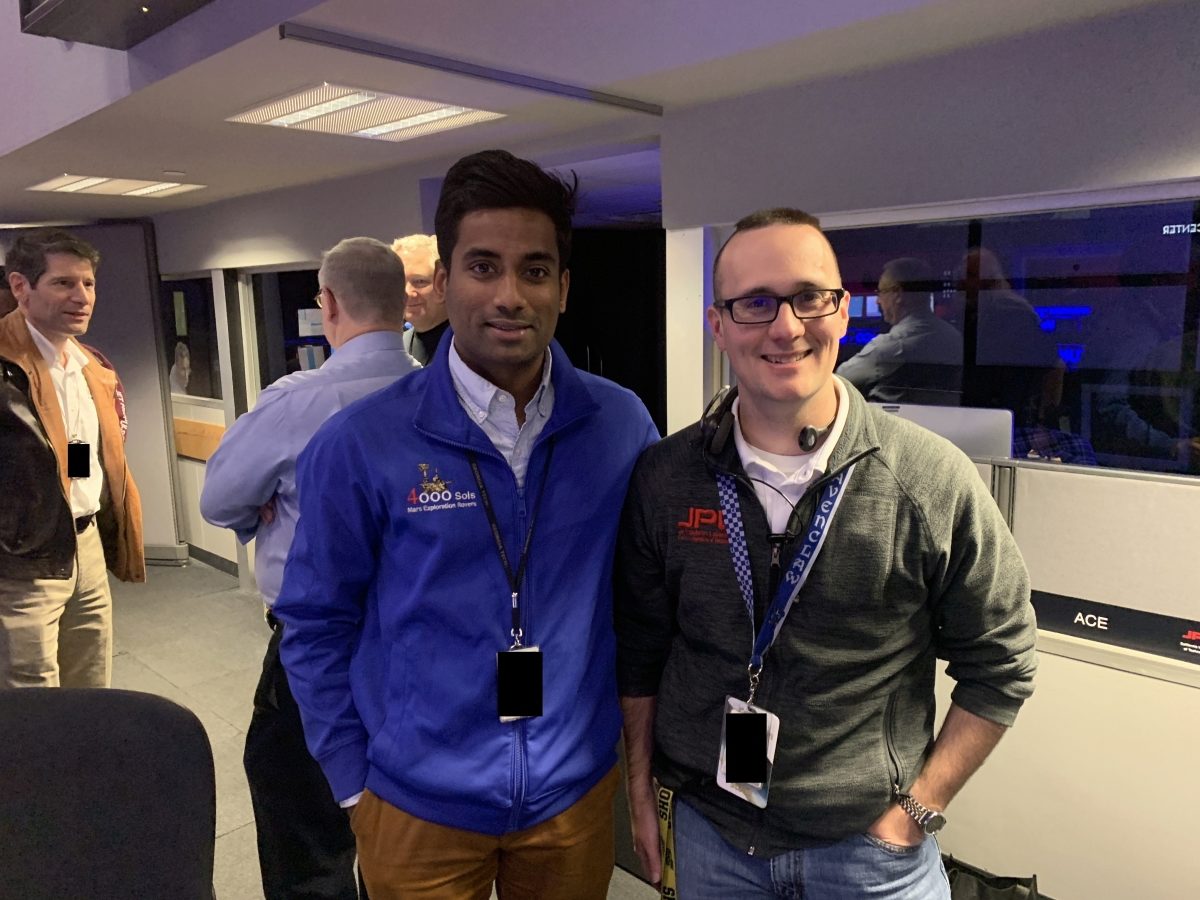 Witnessing History. NASA engineers Vishnu Sridhar, left, and Michael Staab, right, had not graduated high school when the Mars Opportunity Rover mission commenced in 2004. But the two AE grads served as flight directors for the mission on its final day in 2019.
Witnessing History. NASA engineers Vishnu Sridhar, left, and Michael Staab, right, had not graduated high school when the Mars Opportunity Rover mission commenced in 2004. But the two AE grads served as flight directors for the mission on its final day in 2019.
On February 13, when officials at NASA officially concluded the historic Mars Opportunity Rover Mission, two Daniel Guggenheim School of Aerospace Engineering alums were there, playing significant roles.
Vishnu D. Sridhar, BSAE '15 and Michael Staab, MSAE '15 were fulfilling their duties as flight directors for the Mission when the final attempts were made to communicate with the Opportunity Rover. The end of the 14+-year mission gave many space enthusiasts pause, but Sridhar said the mood was upbeat at the Jet Propulsion Laboratory.
"This was a very successful mission, so people were pleased," said Sridhar, who worked on Opportunity for the past three-and-a-half years. "When Opportunity first started its mission, it was supposed to be running for 90 sols [a Martian day] and it was supposed to travel about a kilometer. It far exceeded those goals. It drove a total of 45 kilometers and 5111 sols was its last day. That's beyond successful."
Sridhar said both he and Staab felt honored to be on hand for the final communication attempt, February 13, which came more than six months after the last time the solar-powered vehicle communicated with engineers at JPL. A series of dust storms interfered with the regeneration of Opportunity's solar batteries last year, Sridhar explained, after which a harsh Martian winter was thought to have pushed the batteries out of commission.
"Opportunity was the pioneer," he said. "It will be hard for another rover to meet with as much success as Opportunity."
Though he was sad to see Opportunity conclude, Sridhar remained enthused about transitioning to fulltime work with his new assignment, which he's had for the last eight months: the Mars 2020 Mission. As a payload systems engineer, Sridhar has been working on SUPERCAM, an instrument that will help scientists better investigate the composition of Martian rocks.
"It will fire a laser beam onto a rock to create hot plasma that can be analyzed using spectroscopy," he said. "And it will have a microphone, so we can hear what's going on."